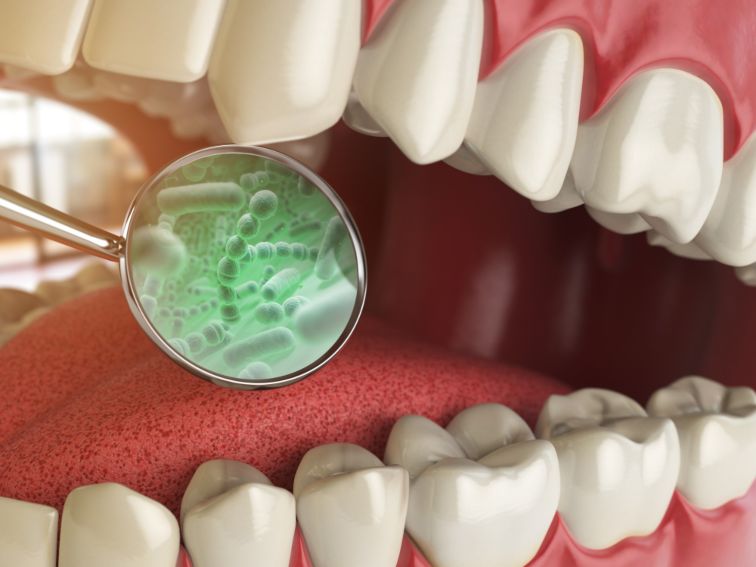
Imagine you’ve just made dinner and are ready to eat. You take your first bite and feel a sharp pain in your teeth. You ask yourself “Why do all my teeth hurt suddenly?”. According to a survey conducted by an American Family Physician, 22 percent of adults fall into this category, highlighting the importance of emphasizing advice such as brushing your teeth daily.
Common causes of sudden tooth pain include infected or cracked teeth, as well as the onset of tooth sensitivity in conjunction with another issue.
Fortunately, most cases of sudden tooth pain can be effectively treated by a dentist. They can also provide guidance on how to prevent future instances of pain and potentially avoid to see your dentist.
Some typical reasons for abrupt tooth pain or a toothache may be due to problems like sensitivity to hot or cold temperatures, decay in the tooth, periodontal disease, teeth grinding, or a broken dental filling. Listed below are 10 common triggers for tooth discomfort.

Sensitivity to hot or cold happens when your enamel of your teeth is eroded. The outer layer of the tooth, known as enamel, shields the underlying tissues. Once the enamel wears away, it exposes sensitive tissues with nerve endings. Teeth may become sensitive to hot and cold temperatures.
Tooth decay, also referred to as cavities, can be the reason behind unexpected toothache. Cavities may develop on your teeth without being detected for a period of time. The formation of tooth decay is due to bacteria on the teeth that generate acid and harm the enamel. As the cavity advances towards an infection, a sharp sensation of pain can be experienced in the tooth. In case of any discomfort in one of your molars, we recommend visiting our blog for additional information about molar tooth pain.
You should avoid eating sugary foods to prevent bacteria that cause cavities from thriving on your teeth.
The sinuses are a connected system of cavities in the skull. Sinus inflammation, also referred to as sinusitis, can sometimes be a cause of toothache. When the sinuses become inflamed and filled with pressure, they push the other tissues around them, including the tissues around the teeth that contain nerve endings that cause tooth pain.
Sinus infections can be treated with oral antibiotics that are prescribed by a medical doctor. In very extreme cases where sinus infections appear frequently, surgery is needed.
The gums are the pink tissue in the mouth that help the teeth stay in place. Gum disease, also known as periodontitis, is a condition where the gums start receding. Gum disease can happen because of aging or physical trauma to the mouth or teeth. When the gums recede, the teeth are left exposed. This can increase the risk of even greater gum disease and tooth infections. The gum tissue that recedes will not grow back, but treatments can help to eliminate further recession and pain.

Gingivitis, also known as gum infection, is the initial phase of periodontal disease. Many individuals may have gingivitis without being aware of it. Common signs of gingivitis include gum sensitivity and bleeding. It is important to address gum infection promptly in order to prevent the advancement of gum disease.
Enamel erosion can cause tooth sensitivity and pain. Erosion occurs when a person has a highly acidic diet, brushes too hard, or can even be a side effect of bulimia. Eroded enamel can’t be restored. Erosion can cause very sharp pain when biting.
Temporomandibular joint syndrome, or TMJ syndrome for short, is a musculoskeletal condition that affects the jaw. The TMJ connects the lower jaw to the skull. People that have TMJ syndrome often experience sudden or severe pain in the jaw, ear or temple, but this pain can also radiate to the teeth.
Known symptoms of TMJ syndrome include:
Having crowded teeth can cause a lot of pain. Crowded teeth can only be painful in some areas or sometimes all the teeth can be painful. Some symptoms of crowded teeth can be crooked or overlapping teeth, pain when the wisdom teeth start coming through or changes in the teeth shape of the bite over time. Crowded teeth can be treated either by wearing a retainer or a fixed brace that helps realign teeth. They can also be treated by removing one or more teeth to make more room in the mouth.
Grinding your teeth and clenching jaw can result in long-term tooth sensitivity as it gradually wears down the enamel. While occasional teeth grinding may occur during stressful moments, frequent grinding can become a habitual behaviour leading to bruxism. Those with bruxism may unknowingly grind their teeth regularly, and sometimes it can even happen while they are asleep.
Using teeth whitening products like bleaching gels and whitening strips, as well as getting professional whitening treatments from a dentist, can increase the likelihood of experiencing tooth sensitivity. However, this sensitivity is temporary and will only last for the duration of using the whitening products.
If your teeth start hurting more and more, you should probably make an appointment with your dentist. Sometimes the treatment can only be a sensitivity-reducing toothpaste, and sometimes corrective surgery, like a tooth extraction or a filling, is needed.
Some symptoms should never be ignored. If you have some of these symptoms, you should visit your dentist right away:
If you experience pain during the night, you can find out more about how to deal with night time pain.

